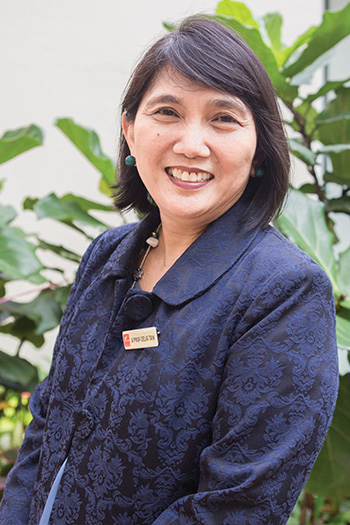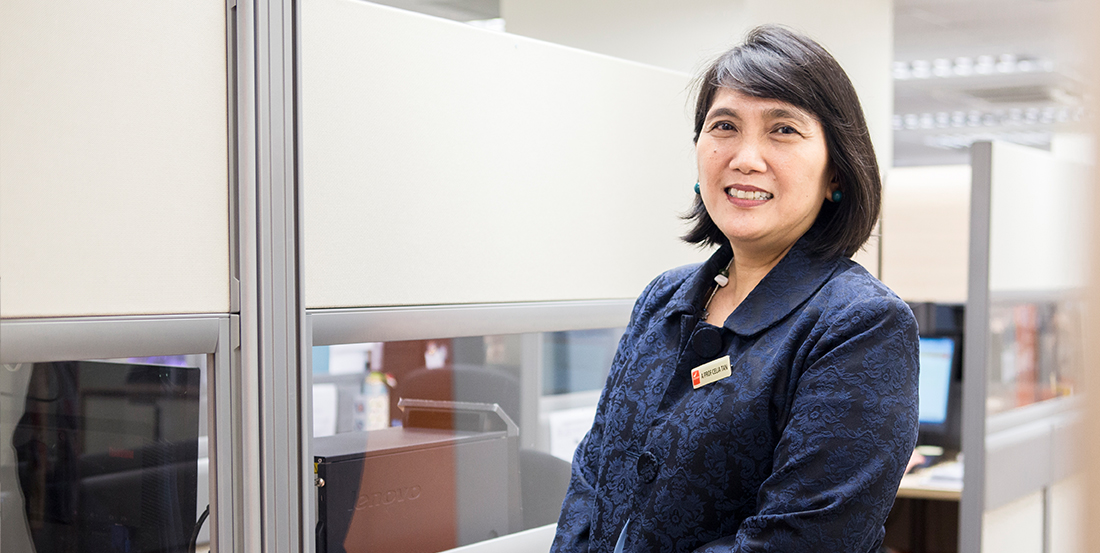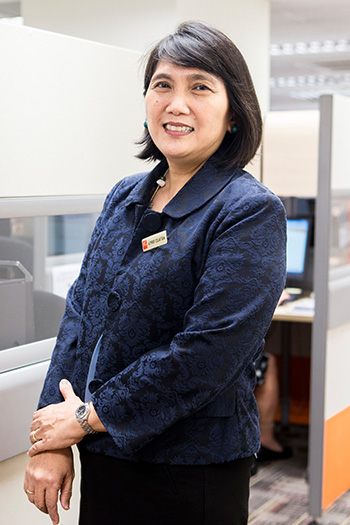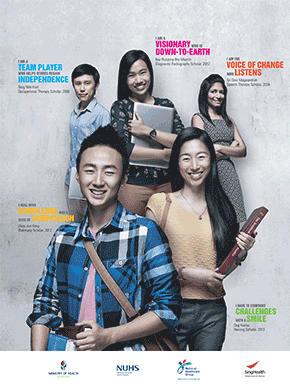Singapore’s public
healthcare is one
of the best in the
world. Find out more
about how Allied
Health Professionals
(AHPs) help make
it so – and the
numerous career
opportunities that
await you as an AHP.
Singapore’s public healthcare sector is kept running smoothly not only by doctors and nurses, but also by the dedication and effort of its
AHPs, who form a critical pillar of the public healthcare system.
AHPs comprise different groups of healthcare professionals providing
diagnostic, therapeutic and other clinical support services – these
professionals include Pharmacists, Physiotherapists, Occupational Therapists,
Medical Social Worker, Radiographers and more.
Associate Professor Celia Tan, Group Director of Allied Health at SingHealth
and Immediate Past Director of the Singapore General Hospital-Postgraduate
Allied Health Institute (SGH-PGAHI), tells us how the Allied Health profession
is moving forward into the future.
Tells Us More About Ahps In Singapore’s Public
Healthcare Sector.
Celia Tan: There are over 20 Allied Health Professions (AHP) found in
public hospitals today. Allied Health Professionals are an inter-professional
integration of healthcare professionals, working alongside doctors and nurses
as a larger whole unit within the healthcare system.

"While there may not be
such a large gap between academia and practice today, there is certainly a
need to provide new graduates with continuous training during the course
of their career"
At SingHealth, we set up the Group Allied Health department in 2011 to take
care of the needs of the different allied health professions. The Department
provides an essential platform for AHPs to share best practices in healthcare,
synergise their expertise to innovate and integrate patient care as well as drive
initiatives for AHPs’ professional development. The results have been positive
as we see strength in numbers to move agendas and optimise resources.
How Will The SGH-Postgraduate Allied Health Institute
(Pgahi) Help Develop AHPs In Both Their Expertise And
Their Careers?
Celia: When I first started out as a Physiotherapist in the 1980s, I noticed
a huge gap between the knowledge and skills I was taught overseas and
the actual practice of physiotherapy in Singapore. While there may not be
such a large gap between academia and practice today, there is certainly a
need to provide new graduates with continuous training during the course
of their career. The healthcare landscape is ever-changing and healthcare
professionals need to keep abreast of the latest developments and acquire
new clinical knowledge and skills.
Having a postgraduate training institute,
especially one located in the clinical environment,
is strategic as the skills in patient care is most
critical after you graduate. The SGH-PGAHI
was established in 2006, to provide continuing
education for AHPs to upskill themselves by
learning from overseas experts and local experts.
More importantly, the Institute provides training for
local AHP educators to be more effective teachers
as well as researchers through inter-professional
courses.
Why Is It Important To Develop
Structured Training And Career
Frameworks For Ahps In Singapore?
Celia: Structured training and career
development should go hand-in-hand, to ensure
that senior AHPs are equipped with appropriate and
advanced competencies and knowledge to practice
as well as train the next generation of AHPs.
In the past, moving into an administrative
leadership role was the norm to advance one’s
career. Eventually, we found that we were losing
valuable and talented AH clinicians who became
senior administrative staff but were still passionate
about clinical work. There were also AHPs who
are keen in education and research, but faced
limited opportunities to take on these activities in
a concerted manner. The end result is a tradition-locked
human resource system where frustrated
clinicians left the
public sector to start
up private practices.
To help address these
issues, we started establishing
alternative career pathways to
enable AHPs to pursue their passion
and advance in their fields of expertise. We
worked very closely with our Human Resource
colleagues to develop a competency-based
career pathway that enabled AHPs to receive the
right training for the right roles, striking a balance
between clinical practice and administrative duties
as they take on leadership positions. This means
that senior AH clinicians can now enjoy a mix of
clinical, administrative, educational and research
responsibilities.
What Sets The Public Healthcare
Sector Apart From Other Fields?
Celia: In order to succeed in the healthcare
sector, you have to think of the needs of others first.
Healthcare is really about addressing the needs of
patients. Do well for your patients and you do well
for yourself in your career as a clinician.
I remember being attached to a paediatric
clinic as part of my coursework, during which I
encountered a 10-year-old child suffering from
quadriplegic cerebral palsy (a movement disorder
involving the body as a whole, including speech
and hearing).
Associate Professor Celia Tan
Designation:
Group Director of Allied Health at
SingHealth and Immediate Past Director
of the SGH-PGAHI
Studied:
Doctor of Philosophy, University of
Western Australia, Australia
Masters in Applied Science and Graduate
Diploma in Paediatric Physiotherapy,
Sydney University, Australia
Diploma in Physiotherapy,
Auckland Technical Institute, New Zealand
At first glance, he appeared to be quite
uncommunicative and unwilling to engage with me.
Initially, I thought to myself, “What can I possibly do
for the poor child?” and “How am I supposed to get
through this clinical placement when I have no idea
what is wrong and what to do?”
"Being a Physiotherapist is about
having the passion to make a difference in another
person’s life with whatever skills and knowledge we
have."
The turning point came only when my
supervisor mentioned that the child was in fact
using his eyes to communicate with me and had
asked where I came from. With that breakthrough
in communication, I saw that behind this body’s
paralytic condition was a child. I started to find
out more about him, what he needed, and how
his family coped with him and his siblings. By the
end of the month, I passed my attachment with
flying colours! I had found my calling, and that
is to make a difference in another person’s life
through Physiotherapy. Being a Physiotherapist
is more than just sports management. It is about
having the passion to make a difference in another
person’s life with whatever skills and knowledge we
have.
Why Should Students Take Up A
Healthcare Scholarship To Join
The Public Healthcare Sector As An AHP?
Celia: As the population ages and more
healthcare facilities are built to cater to Singapore’s
healthcare needs, the public healthcare sector is
a rapidly growing one that offers plenty of career
opportunities. The recognition of AHPs in the public
healthcare sector has also matured immensely over
the years and much work is still ongoing to provide
better recognition and development opportunities.
However, I would also caution that the healthcare
sector is not for everyone and you need to prepare
yourself by understanding what it means to be
working in a healthcare profession.
"In order to succeed in the healthcare
sector, you have to think of the needs of others first."
AHPs require similar aptitudes to other
healthcare professional such as doctors and
nurses. It is a profession where you give your time
and energy to help others. The hospital runs round
the clock, and you must be ready to work in such a
demanding and fast-paced environment.
Join the healthcare sector as an AHP, if you too
hope to make a difference in someone’s life!



